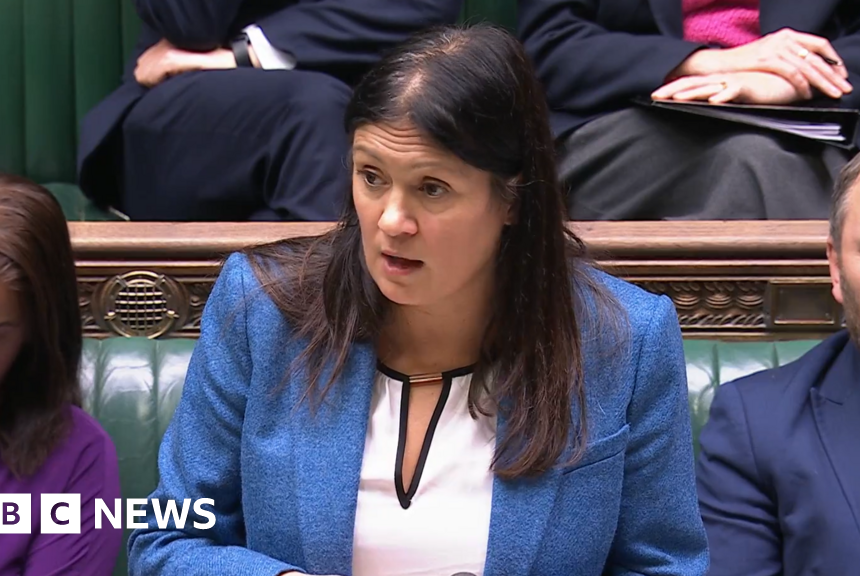The Conservatives say more than 2,000 prisoners serving sentences for rape, stalking and grooming will have their jail time cut because of the government’s new sentencing plan.
The government’s Sentencing Bill, due to be debated by MPs on Tuesday, introduces a scheme which would allow the early release of prisoners in England and Wales who have demonstrated good behaviour.
The Tories have tabled an amendment which aims to ensure offenders of the most serious crimes stay locked up for longer.
Shadow justice minister Kieran Mullan has called the government’s plan “a betrayal of victims” but Labour have accused the Tories of “rank hypocrisy” after they left prisons “at breaking point”.
Last year the Labour government asked former Conservative Justice Secretary David Gauke to lead a review into prison sentencing, including exploring alternative punishments to jail after prisons became dangerously overcrowded.
His review recommended that offenders on a fixed length prison term could be released after serving a third of their sentence, providing they behave well.
Under this “earned progression scheme”, prisoners released early would be monitored with enhanced supervision in the community, followed by a period on licence, which is unsupervised.
The model was inspired by changes made to prisons in the US state of Texas, where the rates of those returning to prison within three years of release fell to 20.3%, compared to 68% in the rest of the country.
The Conservatives have said in addition to more than 2,000 serious offenders having their jail terms cut, Labour’s changes will also benefit over 62% of jailed rapists.
“Keir Starmer is putting criminals before communities and letting predators out early,” Mullan said.
Speaking to the BBC’s Today programme, shadow justice secretary Robert Jenrick said: “I’d rather prisons were overcrowded than releasing prisoners early.”
The amendment tabled by the Tories wants to ensure offenders of the most serious crimes – including rape, sexual offences against children and grievous bodily harm – will not benefit from the government’s early release scheme.
Labour have said the worst offenders – those on extended fixed sentences or life sentences – will never benefit from early release.
Sentencing minster Jake Richards accused the Conservatives of “feigned outrage” and said the government was “cleaning up the mess” left by the Tories.
“The Conservatives’ rank hypocrisy is shameful. They built this crisis, then feigned outrage when the consequences arrived,” he said.
“They took our prisons to breaking point, released thousands of serious offenders early and pushed Britain to the brink of a situation where police could no longer make arrests and courts could no longer prosecute.”
President of the Prison Governors’ Association Tom Wheatley said successive governments have failed to deliver the prison spaces needed to deal with dangerous overcrowding.
“The sentencing bill seeks to address this issue by reducing the amount of time offenders will spend in custody,” he said.
“The alternatives are either spending more taxpayers money on building and running prisons or to continue to release prisoners earlier than the courts intended, as both this government and previous Conservative governments have done.”
The prison population in England and Wales has risen steeply since the mid-1990s, doubling in size between 1992 and 2012.
In February 2024, numbers reached the highest end-of-month level ever recorded at just over 88,300.
After coming into power in July 2024, the Labour government released thousands of inmates, amid warnings that some prisons were about to run out of space.
The Labour government has promised to build four new prisons over the next seven years, creating 6,400 new places.
According to the latest numbers, the total prison population was 87,427, while the usable capacity of the prison estate is 89,286.
The government’s Sentencing Bill also reduces the imposition of short sentences of 12 months or less.
In his sentencing review, Gauke said such sentences “often fall short in providing meaningful rehabilitation to offenders, have a limited deterrent effect and come with high costs”.
However, Jenrick has said the plans were “a get out of jail free card for dangerous criminals”.


